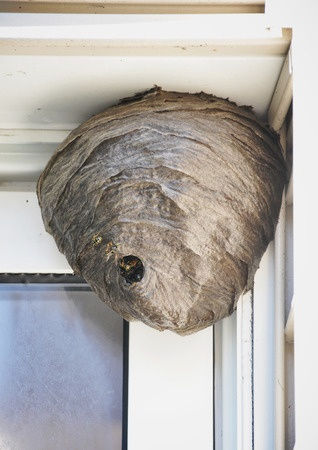Stinging Insects
Stinging or biting insects or scorpions can be hazardous to outdoor workers. Stinging or biting insects include bees, wasps, hornets, and fire ants.
The health effects of stinging or biting insects or scorpions range from mild discomfort or pain to a lethal reaction for those workers allergic to the insect's venom. Anaphylactic shock is the body's severe allergic reaction to a bite or sting and requires immediate emergency care.
Bees and Wasps
Bees and wasps (including paper wasps, yellow jackets and hornets) are most abundant in the warmer months. Wasps can be generally distinguished from bees by their lack of body hair and thinner, elongated bodies. Nests and hives may be found in trees, under roof eaves, or on equipment such as ladders. Wasps very rarely bite and are much more likely to sting. Stings are also significantly more likely to cause reactions than bites.
Workers should take the following steps to prevent insect stings:
- Wear light-colored, smooth-finished clothing.
- Avoid perfumed soaps, shampoos, and deodorants and don't wear cologne or perfume.
- Avoid bananas and banana-scented toiletries.
- Wear clean clothing and bathe daily. (Sweat may anger bees.)
- Wear clothing to cover as much of the body as possible.
- Avoid flowering plants when possible.
- Keep work areas clean. Social wasps thrive in places where humans discard food.
- Remain calm and still if a single stinging insect is flying around. (Swatting at an insect may cause it to sting.)
- If you are attacked by several stinging insects at once, run to get away from them. (Bees release a chemical when they sting, which may attract other bees.)
- If a bee comes inside your vehicle, stop the car slowly, and open all the windows.
- Workers with a history of severe allergic reactions to insect bites or stings should consider carrying an epinephrine auto injector (EpiPen) and should wear a medical identification bracelet or necklace stating their allergy.
Knowledge Check Choose the best answer for the question.
2-8. In a worst-case scenario, what can a wasp sting result in?
You forgot to answer the question!

